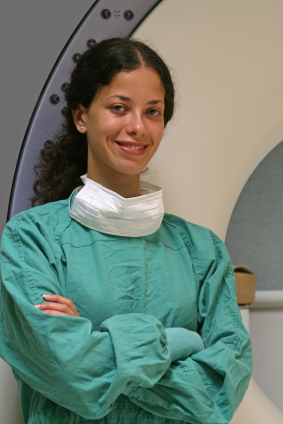Improving Hospital Hygiene Saves Lives
Hygiene is a hot topic in the health care industry as healthcare-associated infections draw a growing amount of attention from government regulators, insurers, and the public. Basic hygiene such as surface cleaning, proper hand-washing, and the use of clean medical scrubs can prevent many healthcare-associated infections, making improving healthcare facility hygiene procedures a smart investment for the industry.

Healthcare-associated infections carry huge cumulative costs for the healthcare industry and are increasingly worrying, as drug-resistant infections are on the rise.
According to the Centers for Disease Control, about one in 25 hospital patients on any given day has at least one healthcare-associated infection. The CDC estimates that there were 722,000 healthcare-associated infections in acute care hospitals in the U.S. in 2011. About 75,000 patients died as a result of these infections.
The most common healthcare-associated infections include:
- Pneumonia – 157,500
- Gastrointestinal Illness – 123,100
- Urinary Tract Infections – 93,300
- Primary Bloodstream Infections – 71,900
- Surgical Site Infections from Any Inpatient Surgery – 157,500
- Other Types of Infections – 118,500
Many of these infections can be prevented by a strict regimen of hygiene. The CDC and other healthcare organizations are urging hospitals and clinics to improve compliance with hygiene procedures. The government is also cracking down via the Affordable Care Act, paying less through Medicare to hospitals with high infection rates.

One of the most effective means of preventing healthcare-associated infections is one of the simplest. Ensuring that all healthcare workers follow hand-washing procedures can greatly reduce healthcare-associated infections. A substantial body of evidence exists showing that improved adherence to hand hygiene policies in healthcare settings can greatly reduce infections.
In addition to proper hand-washing, proper cleaning for surfaces is also vital to preventing infections in healthcare settings. Using the right cleaning supplies and regularly cleaning surfaces that patients and healthcare staff come into contact with is a must for decreasing the potential for infections. Following procedures for disposing of medical waste is also essential to reducing infections acquired in healthcare settings.
It’s up to healthcare facilities managers to implement and enforce hygiene policies and procedures in hospitals and clinics. To better create a culture of cleanliness, managers should have regular training sessions to remind employees of the importance of hygiene. Posters and other visual reminders can also help employees be mindful of the need to follow hygiene protocol.
Working with visitors and patient families is also important. Healthcare facilities managers should distribute literature throughout their facilities that inform patients, visitors, and families of patients about the importance of hygiene issues such as hand-washing. With a focused effort, better adherence to hygiene protocols can be achieved, leading to a reduction in the number of infections acquired in healthcare settings.
Founded in 1932, Prudential Overall Supply is an established name in the uniform and safety apparel business, and it has a reputation for high quality products, including medical scrubs and nurse uniforms. To learn more, contact us at 800-767-5536.